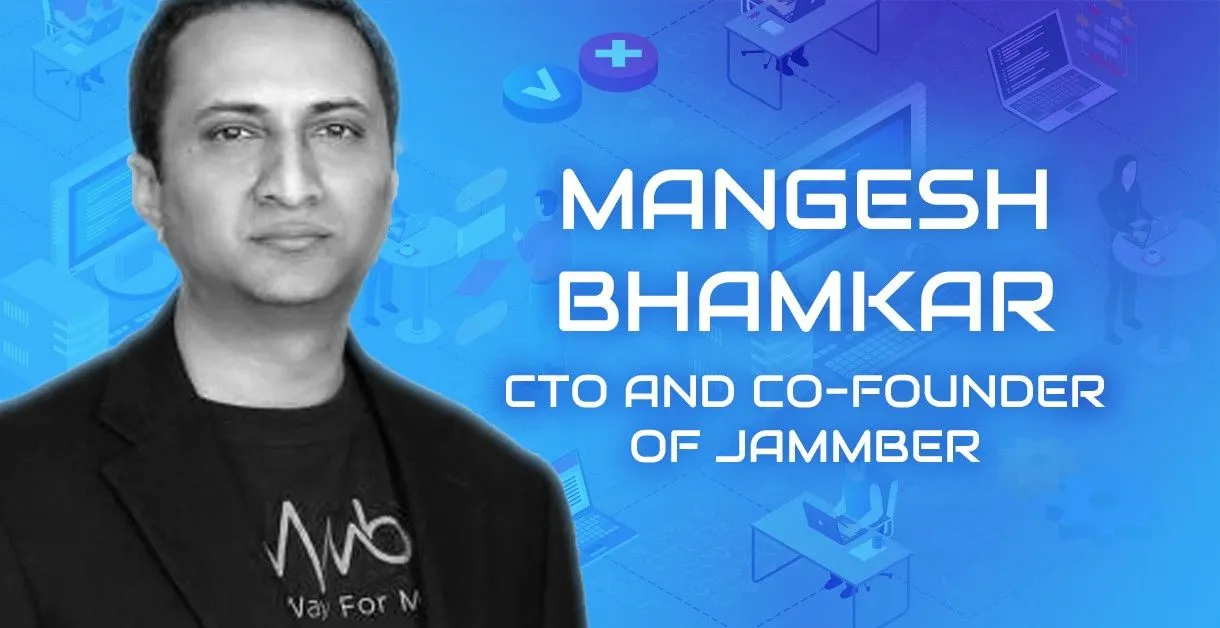
I’m always fascinated by how tech founders start their businesses. Could you speak to how you came up with the idea for Jammber and how you decided that the idea had merit?
In late 2014 or early 2015, my cofounder created the original concept for Jammber. He identified the need for an online tool that would allow independent musicians to connect with people looking to hire them.
Oddly, in the pre-digital days, it was easier to identify all the artists supporting the creation of albums behind the scenes. There used to be comprehensive books that listed everyone involved, not just the featured artists. As everything became digitized, these books went away, and a digital solution did not replace them, which is what we set out to do. We love music, and our goal was to help people find talented musicians to hire and to help budding musicians to be successful.
As we moved forward developing our solution, we realized the problem we were trying to solve—the discovery of artists—was just one small piece of the puzzle. In fact, the reason the process was not working is that there were so many mediums allowing consumers to access music—namely streaming services.
Just as the industry has changed, the way musicians approach their careers has also changed. Many independent artists don’t want to take the traditional route of allowing a label to handle everything. They want to own and control their creative process. However, with this control comes to the complications of running a business.
So, the problem was not just the discovery of artists but payment, royalty collection, copyright management, and distribution of music across several platforms. The original idea of Jammber as merely a discovery vehicle quickly evolved to become a solution allowing musicians to manage this process. Our solution makes it not only feasible to manage this complex process but also allows artists to keep a larger share of their revenue. We removed inefficient and inaccurate processes, reducing the time spent on administrative tasks and allowing the artists to focus on what they truly love doing—making music.
It sounds like you and your cofounder listened to the needs of the market and adjusted and considerably expanded the original vision.
Yes. When you listen to the people you serve, you often find opportunities to expand your vision and better support them.
What’s been the most troublesome part of scaling your company?
The biggest challenge for me has been focusing on the short-term needs of our business while also working toward long-term goals. This balance is especially challenging in the early, high-growth phase of a company because you get pulled in so many directions and have to wear so many hats. I’ve had to become more disciplined and focused and better at prioritizing.
For the company, the biggest challenge has been balancing today’s market economics. The labor market is tight, which is great for the country, but that makes it tough for developing companies to find and hire the talent they need. Our company looks for people who are not only the right talent and cultural fit but are excited about the higher calling of helping musicians and aren’t solely focused on making money.
Actually, we find that money is not the way to win over high performing people. Instead, we share our vision and express how we want them to contribute. This excites some of the best tech talents.
Hiring people is one of the most important things we do, so we can’t take shortcuts. Across the company, we spend a lot of time finding the right people for the job.
Are there scenarios where it makes sense for growing tech companies to use contract workers or consultants? Conversely, are there times when it makes little sense to use contractors?
I have used offshore teams for 10–15 years and hired people from around the world. Sometimes this has worked well—and times it has not.
Cost savings are only cost savings if they save you time. If the offshore team is less expensive from an hourly rate perspective, but your leadership team must spend large amounts of time coordinating and managing them, it is going to cost you money. Sometimes the quality of work suffers.
Finding offshore talent capable of being in a leadership role without having a team under them are individuals who work out well. They are go-getters and can figure things out while still being hands-on.
That said, offshore talent typically only works when you are in an ongoing development cycle. When you are in the early days—prototyping and creating initial concepts—this work needs to be handled by the internal team. It’s important to remember that, whether talent is onshore or offshore, not everything is going to work out. Don’t get caught up in cost savings; look at the bigger picture.
How do you manage the process of goal setting and making sure that you’re getting the right goals that will move your company forward?
Goal setting is a critical job of the leadership team. Other things are always going to come up, risking moving you away from your vision. On one hand, be flexible and nimble. On the other hand, you can’t let the company get off-track. We constantly work to weigh the new demands or opportunities against the original goal to determine whether the goal should be adjusted. It is an ongoing process.
The entire team needs to have a complete understanding of every facet of the goal. This understanding allows the full team to offer suggestions if they think a goal is off-target. Sometimes, goals need to be adjusted. The company needs monetary goals but also engagement-level goals and other KPIs. You want to keep the presentation of progress toward the goal as simple as possible and break goals down into small, manageable chunks.
Team-wide celebrations seem to be an important part of your management philosophy and the culture at Jammber. Could you speak to this?
We work not only in different offices but in different countries. In the daily grind, it’s easy to forget how important team members are. Also, many members of the team don’t have a complete cross-functional picture of the company or see the vital roles other teams play. It’s easy for members of the tech team to talk to each other because they come from similar backgrounds. However, it’s more challenging for the tech team and sales to appreciate one another’s contributions to the success of the company. Having company-wide celebrations helps bridge these gaps.
When the full team is together, they get to know one another and can appreciate each other’s skillsets and their respective contributions to long-term goals. As a result, everyone becomes more excited about working together.
Plus, we serve the entertainment industry. We like to party.
Sphere Software (https://sphereinc.com), is the sponsor and organizer of Techdebates.org and also finds great value in these follow-up discussions with industry experts. Sphere is a technology consulting and solutions company. Everything we do is designed to accelerate your business, remove technical constraints and eliminate staffing bottlenecks.





